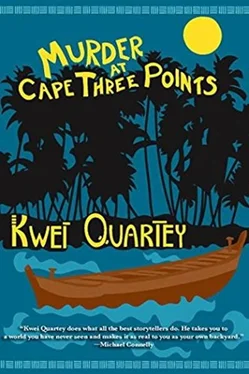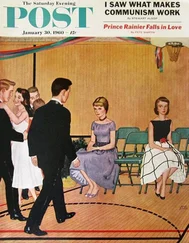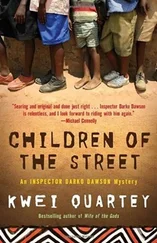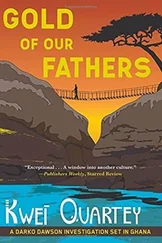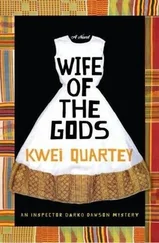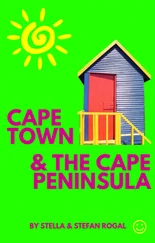Turning to Chikata, Dawson explained. “On the fourth of May, Smith-Aidoo had texted Tetteh to say he would be in Accra in a few days and that they should meet up. He sounded very serious. They must have met, and this is the email after the meeting. So, it seems Tetteh wanted to blow the whistle on something, and Charles was trying to stop him from doing it.”
“Maybe it was a corruption scheme,” Chikata suggested. “Is it possible Charles had Tetteh killed in order to stop him from exposing it? But then, who killed Charles and Fiona, and why? This is confusing.”
Dawson’s eyes were closed as he tried to work it out. “It’s more likely that Charles told a third party, who decided to get rid of both him and Tetteh because of what they knew. It could be the BNI director behind it, or Amihere, the MP.”
“What about Superintendent Hammond?”
Dawson opened his eyes again and looked up at Chikata. “What about him?”
Chikata shrugged. “Maybe he hasn’t told you the whole story and he’s more involved than we think. How do we know he’s not caught up in a cover-up and had a hand in the killings? Why else has he been trying so hard to block our progress?”
“Maybe,” Dawson said with a sigh. He was worried that Chikata could be right. “We’ll have to keep it in the back of our minds as a possibility.”
There were no further emails to be found on the drive.
“He has some documents on here too,” Dawson said. “Let’s see what they are.”
They skimmed quickly through minutes and transcriptions of several meetings with sterile-sounding titles like Progress on the East Cape Three Points Exploration Block and Plans for Monetization of Natural Gas. Nothing was remarkable about them, but the next one they found had them carefully reading every line.
THE OIL COAST
Why Ghana is Not the Master of Its Destiny in the Petroleum industry By Lawrence Tetteh
To: TheTimes.co.uk
In 2007, the Malgam Oil Company discovered large reserves of offshore oil at Ghana’s Cape Three Points in the Western Region. With the cooperation of the Ghana government, the development of the East Cape Three Points well oil was fast-tracked in record time to first oil in December 2010. A feeling of elation captured the country. People dreamed of working in the oil and gas industry and of the riches that would result.
Of course, much of it was, and still is, an illusion. Most of oil work is restricted to a highly trained few, and the industry itself will never be a huge employer. There are more opportunities in the supportive, service, and hospitality industries, where less-skilled workers have a chance. This explains the massive influx of people moving from other parts of the country to the city at the center of the new oil industry, Takoradi.
Another illusion abides, however, concerning Malgam in particular. Malgam’s CEO, Roger Calmy-Rey, son of renowned Ulysses Calmy-Rey, has given the impression that the company is committed to preserving the environment, the fishing industry, and the livelihood of the coastal peoples. With his successful promotion of the highly polished public image of his company, Mr. Calmy-Rey is lauded for aspiring to his father’s lofty ideals of humanitarian oil exploration and production.
Yet, last year when an oil spill occurred and killed millions of fish, Malgam showed no interest in compensating fishermen for their losses. They claim they paid for cleanup costs, but the process lacked transparency, and it is not clear how much they spent or how much they actually cleaned up. The two companies refused to pay the Ghanaian government a fine. Malgam is now embroiled in a legal case.
A number of additional disturbing issues have surfaced within the last year:
• Mr. Calmy-Rey has indicated that he seeks to bring local content online as soon as possible. However, the “training programs” that Malgam provides are a token gesture that involve only a small handful of Ghanaians every year.
• Rather than sourcing local food supplies, Malgam imports food for its rig workers from Europe or neighboring Ivory Coast.
• Malgam has preferentially awarded contracts to foreign companies, e.g. air transportation for executives was awarded to a Dutch company instead of a capable Ghanaian one; heavy lifting equipment was awarded to a British company; and the tug boats used in repositioning offshore oil rigs are operated by an Italian group.
• Expatriate engineers are paid three or four times what their equivalent Ghanaian counterparts are and are more likely to get certain perks such as a free car or company credit card.
Goilco, Ghana’s state-owned petroleum company, has a 10% carried interest in the East Cape Points license. That Goilco entered into this agreement is a matter of personal pride for me in the last three years that I have been on board as the CEO. However, I have a wider pride that goes far beyond the boundaries of our offices. I want to see a minimum and not arbitrary pay scale for Ghanaian workers, and I have fought for it. It has been a losing battle.
Malgam CEO Roger Calmy-Rey himself approached me with a proposal that I abet his efforts to achieve certain ultimate goals in return for substantial remuneration to me. The specifics were as follows:
• Reduce pressure on Malgam to reimburse fishermen in the event of an oil spill.
• Strengthen regulations against fishing activities near deep-sea installations.
• Work toward avoiding fines on Malgam in the case of an oil spill-they will pay for cleanup only and their own experts will determine the cost.
• Establish few or only loose regulations against waste dumping from the FPSO (Floating, Production, Storage, and Offloading) vessel into the Gulf of Guinea.
• Firm pressure against establishing a Maritime Law in Parliament.
• Avoid any formal, government-determined pay structure for Ghanaians, and a “look-away” policy vis-à-vis discriminatory salary policies against Ghanaian workers.
• And above all: collusion in promoting a humanitarian image for the Malgam in general and Roger Calmy-Rey in particular.
Malgam Oil and its CEO now have a problem. I am the problem. In my entire career, I have never been corruptible, and I don’t intend to start now. My answer to all of the above proposals is “no.” I have sacked the three Goilco officials known to have accepted gifts of cash and expensive trips abroad from Malgam.
In order to achieve the corrupt schemes listed in the foregoing, Malgam is paying off high government officials in the chain of command. The Minister of Energy, the Hon. Terence Amihere, has received a retainer of $200,000, deposited in his Swiss bank account in order to assist Malgam in the ways outlined above. I have this on the authority of a ministry insider.
The time has come for a full investigation of corrupt practices carried out by Malgam and other oil companies operating off Ghana’s shores. I call for this because I love my country and I want to see it prosper. This is not about me. In fact, I don’t care what happens to me. This is about Ghana, a country whose immeasurable potential can be attained only if honor can triumph over greed and corruption.
Dawson took a breath and leaned back. “Unbelievable.”
“Do you think all these accusations are true?” Chikata asked.
“I don’t know,” Dawson said, rubbing his chin in thought, “but it almost doesn’t matter. The point is that the accusations have been made, and they are so serious that they warrant an investigation.”
“Why was Tetteh sending it to a UK paper?”
Читать дальше
